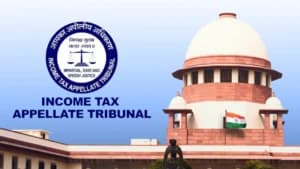In a significant ruling, the Supreme Court of India upheld the decision of the Sikkim High Court, declaring that lottery distributors are not liable to pay service tax. The Court dismissed the appeals filed by the Union of India, affirming that the relationship between lottery distributors and the State of Sikkim is principal-to-principal, not principal-to-agent. This judgment has far-reaching implications for the taxation of lottery-related activities in India.
Background of the Case
The case revolved around the Finance Act, 1994, which was amended multiple times to impose service tax on lottery distributors. The Union of India had introduced clause (zzzzn) under Section 65(105) of the Finance Act, 2010, which categorized the activities of promotion, marketing, organizing, or assisting in organizing games of chance, including lotteries, as taxable services. This amendment was challenged by several private companies, including Future Gaming Solutions Pvt. Ltd., which were engaged in the sale of paper and online lottery tickets organized by the Government of Sikkim.
The petitioners argued that their activities did not fall under the purview of "taxable service" and that the State Legislature had exclusive competence to levy taxes on betting and gambling under Entry 62, List II of the Seventh Schedule of the Constitution. They contended that the Parliament could not impose taxes on activities falling under Entries 34 and 62 of the State List.
Read Also:- Supreme Court Declares Public Employment Advertisements Invalid Without Mention of Available Posts
The Sikkim High Court had earlier struck down clause (zzzzn) of Section 65(105) of the Finance Act, 2010, declaring it ultra vires to the Constitution. The High Court ruled that the activities of lottery distributors did not constitute a service and were therefore beyond the scope of taxable service. It further held that the activities of promotion, marketing, and organizing lotteries fell under the category of betting and gambling, which is exclusively within the legislative domain of the State Government under Entry 62, List II of the Seventh Schedule.
The High Court emphasized that the Parliament could not levy taxes on activities that fall under the State List, even under its residuary powers under Entry 97, List I. The Court also noted that the relationship between the State Government and the lottery distributors was principal-to-principal, not principal-to-agent, and therefore, no service tax could be levied.
The Supreme Court, in its judgment delivered by Justice B.V. Nagarathna and Justice Nongmeikapam Kotiswar Singh, upheld the Sikkim High Court's decision. The Court held that the relationship between the State of Sikkim and the lottery distributors was principal-to-principal, and not principal-to-agent. Since there was no agency relationship, the distributors were not rendering any service to the State Government, and therefore, service tax could not be levied on their activities.
"There being no agency, no service is rendered by the respondent-assessees herein as an agent to the Government of Sikkim, service tax is not leviable on the transactions between the purchaser of the lottery tickets and the Government of Sikkim," stated Justice Nagarathna.
The Supreme Court also affirmed that the conduct of lotteries falls under the category of betting and gambling, which is exclusively within the legislative competence of the State Government under Entry 62, List II of the Seventh Schedule. The Court followed its earlier decision in the K. Arumugam v. Union of India case (2024), where it was held that the sale of lottery tickets by a State Government is not a service but an activity to earn additional revenue. Therefore, the wholesale purchasers of lottery tickets are not promoting or marketing any service rendered by the State, and hence, they are not liable to pay service tax under the head of business auxiliary service.
- State's Exclusive Power to Tax Lotteries: The judgment reaffirms that the State Government has the exclusive power to levy taxes on activities related to betting and gambling, including lotteries. The Parliament cannot impose taxes on these activities under its residuary powers.
- Principal-to-Principal Relationship: The Court clarified that the relationship between the State Government and lottery distributors is principal-to-principal, meaning that the distributors are not acting as agents of the State. This distinction is crucial in determining the applicability of service tax.
- No Service Tax on Lottery Distributors: The ruling provides relief to lottery distributors, as they are no longer required to pay service tax on their activities. However, they will continue to pay the gambling tax levied by the State Government under Entry 62, List II.
- Clarity on Taxable Services: The judgment brings clarity to the definition of taxable services and reinforces that activities related to betting and gambling cannot be taxed under the service tax regime.














